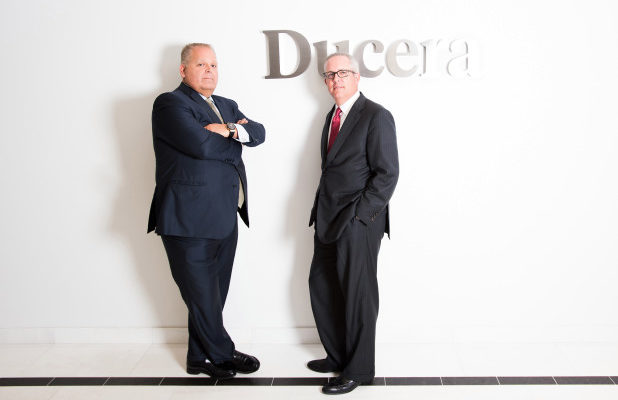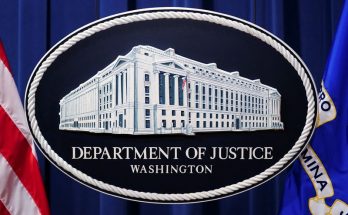By Dugan
Two powerful Wall Street investment bankers could be on the hook for millions of dollars in back taxes and penalties after one of the world’s most prestigious law firms botched their pay packages — and then left them in the dark about the error for years, The Post has learned.
The two bankers — Michael Kramer and Derron Slonecker — face an IRS crackdown on $10.4 million in compensation after their bank’s law firm, Weil, Gotshal & Manges, screwed up a deadline for routine paperwork, according to sources and a report Weil commissioned on the matter.
It’s unclear what steps Weil took to inform Kramer and Slonecker about the error, but there is evidence indicating that the law firm may have failed to disclose it to the parties — including their client, investment bank Perella Weinberg Partners — in a timely fashion.
The NYC law firm commissioned a report on the error in 2017, which cleared them of wrongdoing, according to a copy obtained by The Post. But the report didn’t include meeting notes from two years earlier, when the error was first discovered, where Weil partners discussed “malpractice” — and whether to disclose the mistake to Perella, according to documents and a source familiar with the matter.
The problem started in 2011 when Weil lawyers missed a crucial deadline to defer Perella partners’ compensation by five months — meaning that, in the eyes of federal and state tax authorities, the money should have been paid to the bankers in one shot, according to a copy of the 2017 report.
It wasn’t until nearly four years later, in a conference room at Weil’s New York headquarters overlooking Central Park, that two Weil partners were first briefed on the error, according to notes and interviews. The two partners were Michael Nissan, the head of Weil’s private equity compensation, and Nicholas J. Pappas, a partner in Weil’s employment litigation group, according to contemporaneous notes of the meeting obtained by The Post.
“I think they screwed up, possibly with Weil’s advice at the time,” Nissan allegedly said during the December 3, 2015, meeting, referring to Perella.
“He could sue us for not disclosing it,” Nissan said, meaning that one of the bankers could bring a suit for the lack of disclosure.
“How is this relevant to our case?” Pappas then asked, speaking about a lawsuit Weil was handling against the very ex-partners whose compensation had been screwed up.
“I think it is in everyone’s interest not to raise this,” Pappas added, according to the notes.
It’s unclear whether Pappas and the other lawyers at the meeting ultimately made a decision on reporting the error.
At the time, Weil was at odds with Kramer and Slonecker, who were fired by Perella in 2011 after they tried to poach other employees to start their own investment bank, Ducera Partners. Perella sued them for poaching — and they countersued for their deferred compensation, not knowing it had not been properly deferred.
Kramer and Slonecker still have not received the $10.4 million, which includes more than $9.1 million for Kramer and $1.3 million for Slonecker, according to court documents.
The case, including the counter lawsuit, is still playing out in New York state court.
The next day, on Dec. 4, 2015, the pay bungle was escalated to Jeffrey S. Klein, the head of Weil’s employment litigation group.
During that nine-minute meeting, which started at 12:04 p.m., Klein was briefed on the conclusions Nissan and Pappas had come to the day before: “Kramer owed tax on the $9.1 M in 2011 plus a 20% penalty,” according to the notes.
“Significant malpractice issue,” Klein said, according to the notes. “Worst thing you can do is not disclose it,” Klein said, according to the notes.
Klein then said he would speak to Mindy J. Spector, the law firm’s general counsel, about the matter, according to the notes.
What happened next is unclear. It’s possible that Weil promptly informed Perella of the mistake, but a person familiar with the discussions said the bank was not immediately informed.
Two years later, in 2017, Perella Chief Financial Officer Aaron Hood appeared blindsided when asked about the compensation error during a deposition in the case, according to people with direct knowledge of the questioning.
Lisa Solbakken, a lawyer for Kramer and Slonecker, asked Hood about the deferral error and he wasn’t prepared to answer the question, two people with direct knowledge of the deposition told The Post.
He was “shocked and dismayed” to learn about it, one person said.
Solbakken declined to comment on behalf of herself and her clients, Kramer and Slonecker. Representatives for Weil didn’t return requests for comment about when they told Perella about the mistake. Spector, Klein, Nissan, Pappas and Hood didn’t return messages seeking their comment.
A Perella spokesperson also declined to say when the bank first learned about the error.
“The client’s entitled to know what’s going on,” Richard Zitrin, a legal ethics professor at UC Hastings College of the Law, and a founder of the University of San Francisco’s Center for Applied Legal Ethics. “It’s unreasonable not to tell them you screwed up.”
It was soon after Hood’s deposition that Weil commissioned a third-party law firm, the Groom Law Group in Washington, DC, to write a report about the deferral error, one source said.
The 14-page report, which was completed in early May 2018, tentatively clears Weil of wrongdoing and cites a legal contract maneuver that allows parties to change the terms of a contract that were made in error.
In other words, Weil’s mistake may still turn out not to have negative tax impact on the bankers, although it remains to be seen what the tax authorities decide.
Depending on the resolution of the case, the error could open the bankers to millions of dollars in back taxes, penalties, and interest — and could open Weil to accusations of legal malpractice, according to legal ethics experts and people familiar with the matter.
Perella could also be on the hook for those costs.
If the two bankers win their lawsuit against Perella and are granted the deferred compensation, however, they will have an incentive to support the idea that it was a harmless error to avoid penalties and back taxes.




